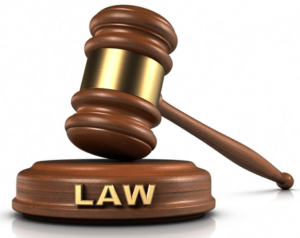Supreme Court fixes June 7 to rule on NCA’s interpretation
 The Supreme Court has slated June 7 to deliver its ruling in the case in which former board Chairman of the National Communications Authority (NCA), Eugene Baffoe-Bonnie and four others who are allegedly being held in a $4 million scandal.
The Supreme Court has slated June 7 to deliver its ruling in the case in which former board Chairman of the National Communications Authority (NCA), Eugene Baffoe-Bonnie and four others who are allegedly being held in a $4 million scandal.
Baffoe-Bonnie and his four accomplices are before the apex court of the land to seek interpretation of Article 19 Clause (2) (e) and (g) of the 1992 Constitution.
Article 19 Clause 2 (E) of the 1992 Constitution provides that accused persons must be given ‘adequate time and facilities for the preparation of their defence which is within their fundamental human right’.
Defence counsels for the accused have held that the state must provide them with all documents, including those they do not even intend to tender.
The High Court hearing the case therefore stayed proceedings so that accused could seek interpretation at the Supreme Court.
The seven member panel gave the date after the accused through their lawyers have filed their respective statements of case.
When sitting resumed, defence counsels indicated that they would relied on the respective statements of case.
Mr Godfred Yeboah Dame, Deputy Attorney General indicated that they received the accused statements of case and would have to respond to each one.
Justice William Atugubah presided over the matter together with Justices Julius Ansah, Sophia Adinyira, Jones Dotse, Gabriel Pwamang, Sule Gbadegbe and Yaw Apau.
An Accra High Court, presided over by Justice Eric Kyei Barfour on February 1, this year, stayed proceedings in the trial of former top officials of the NCA, who have been accused of willfully causing financial loss to the state and fraud.
They are Eugene Baffoe Bonnie, former Board Chairman of NCA, William Mathew Tetteh Tevie, former Director General; Nana Owusu Ensaw, a former chairman of finance sub-committee of the NCA; Alhaji Salifu Mimina Osman, a former Deputy National Security Coordinator on the NCA Board, as well as a private businessman, George Derek Oppong, Director of Infralocks Development Limited (IDL).
Godwin Tamakloe and Osafo Buaben, lawyers for Alhaji Mimina Osman and George Derek Oppong, respectively prayed the court to compel the Attorney General to furnish their clients with documents they intend to rely on for the trial pursuant to the Article.
According to Mr Tamakloe, Article 19 Clause 2 (E) of the 1992 Constitution provides that an accused must be given ‘adequate time and facilities for the preparation of their defence which is within their fundamental human rights.
The state, represented by Mrs Evelyn Keelson a Chief State Attorney, strongly opposed the motion, arguing that the Article was being wrongly quoted and that it is only the Supreme Court that has the power to interpret the Articles in the Constitution, if the need arises.
She said there are no rules that compel the state to supply accused with list of witnesses and witness statements three days before they are to be tendered in court.
Justice Eric Kyei Barfour, in his ruling on the matter, held that if the court grants the prayer of the defence lawyers for the state to furnish the accused with documents three days before they are tendered, it would be prejudicial and subsequently dismissed it for lack of merit.
He held that High Court did not have the power to interpret the said Article hence stayed proceedings and referred them to the apex court of the land.
The Supreme Court is to determine whether the accused are entitled to disclosure and at what point should the prosecution furnish the accused with documents
The court is also to determine whether in a summary trial, an accused person is entitled to the list of witnesses and witness investigation statements, as well as documents in possession of the prosecution even if they would not be tendered.
Source: GNA
